School library – Why they’re vital and how to improve yours

Join us as explore the importance of school libraries and share actionable ways you can improve and revitalise yours…

- by Teachwire
- Classroom expertise and free resources for teachers
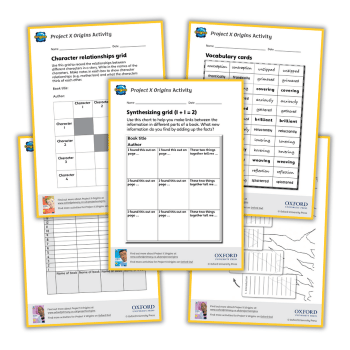
It’s a shocking fact that while prisons must have a library, this is not a mandatory requirement in UK schools. In fact, according to the School Library Association no one actually knows how many school libraries exist, whether or not they are staffed, or how they are funded.
At their worst, school libraries are squashed into corridors or located in a dark corner behind a cloakroom, where battered books fight for space among coats, bags and muddy wellies.
However, a good school library can play a crucial role in supporting literacy, fostering a love of reading and providing students with access to a wide range of learning materials.
In this post we explore why school libraries are essential to a well-rounded education, and offer practical tips for enhancing your school library space, even when resources are limited.
With the right strategies, you can transform your school library into a vibrant hub of knowledge and creativity…
Table of contents
Why are libraries important in schools?

As everyone who’s worked in them knows, a successful school library is so much more than a depository of books. It’s a place where the written world can come to life.
At its best, a school library:
- increases engagement from pupils
- reduces barriers to learning
- supports teachers
- supports students in retrieving important, relevant and credible learning content
- encourages reading for pleasure
A good school library is one where children can come if they feel anxious, emotional or overwhelmed. This is vital at a time where, according to recent surveys, one in ten children and young adults suffer from mental health problems such as anxiety, depression and conduct disorders.
As former Children’s Laureate Chris Riddell puts it, “Our schools need places where children can discover the joy of reading for pleasure, places of quiet sanctuary and places where they can acquire the skills of guided research.”
How to improve your school library

Part-time school librarian Sam Pope explains how to make your library the beating heart of your school…
Make it more than a library
A school library needs to be more than a stereotypical collection of dusty books and a librarian invoking silence. To make the space work best for staff and children, you need to move beyond the mantra of ‘reading is good for you’.
“A school library needs to be more than a stereotypical collection of dusty books”
There has to be some interest, excitement and perhaps a touch of magic to lure even the most dedicated reader through your doors.
Book-related arts and crafts sessions are very popular with the children. Not only does this stimulate their artistic skills, it helps them to explore, understand and enjoy books on a deeper level.
Create inviting displays
Think about what’s above or around your bookcases. Colour and a few cheap fairy lights can make even the dullest room come to life.
For example, I created a display dedicated to the 50th anniversary of the lunar landings. The children helped me by drawing little astronauts based on themselves.
Not only do we have a topical display in the library, linked to science and history, we also have something colourful to look at that the children helped create.
If you involve them, children will own the library space and give you plenty of materials to Blu-tack to the wall.
Run competitions
Every summer term I run a school-wide competition based on books. For example, we’ve had superhero and supervillain fruit and veg based on Sue Hendra’s and Paul Linnet’s Supertato series; and ‘Cakespeare’ – a baking or decorating challenge to celebrate the 400th anniversary of Shakespeare’s death.
The children look forward to this and start nagging me in May for the year’s theme.
Keep up to date with literacy-based challenges for children, such as the 500 Words writing competition.
“Keep up to date with literacy-based challenges for children”
Celebrate those children who have the determination and creativity to even enter a story. Display their work in special books in the library for others to enjoy.
Create a sanctuary
The ideal school library has a safe, creative and welcoming atmosphere. It’s somewhere pupils can go when the playground feels too much, or when they feel overwhelmed and need some quiet time.
As well as all the books think about cuddly toys for children to hold (or read aloud to – a wonderful incentive for reluctant readers) and literacy games for children to play, like mixed-up fairy tales or storytelling cubes.
“The ideal school library has a safe, creative and welcoming atmosphere”
If you make a place welcoming, comfortable and attractive, people will want to spend time there – for the tranquillity, the creative inspiration and, of course, the books.
Have a dedicated school librarian
Dedicated school librarians (and they don’t have to have a library qualification to be effective) can engage families and carers and the wider community to instil a love of reading. Their role might include:
- helping staff with reading materials to support classroom education
- creating interesting and entertaining challenges in reading and writing
- working with children who are reluctant readers or struggle to achieve their age-appropriate reading levels
- liaising with local bookshops and libraries
- keeping in touch with authors and illustrators, arranging school visits and sending them photos, letters and tweets
- running activities such as storytime and arts and crafts sessions based on the books and poetry children are reading
Engage with children’s book awards
And here’s a bonus idea from Nikki Gamble, director of Just Imagine…
Replenishing your school library stock needs to be strategic. One approach is to put in place an annual programme structured around the major book prizes. There are three advantages to working in this way:
- Prize shortlists are constructed after a rigorous process, which means you can be confident of purchasing high-quality books for your readers
- Each prize affords opportunities to refresh the displays in your library, creating interest all year round. Many of the prize organisers produce resources that you can use for display
- You can engage pupils from the announcement of the shortlist through to the final award ceremony, setting up shadowing groups, making space for peer-to-peer recommendations, contributing to the award websites, and having your own school vote
Here are some awards that you can include in your plans:
- Young People’s Book Prize – Run by the Royal Society, this prize aims to inspire young people to read about science
- Information Book Award – Administered by the School Library Association, this prize celebrates the very best in non-fiction publishing
- The Lollies – The Lollies (or Laugh Out Loud Awards) came about after Michael Rosen noticed a distinct lack of funny books on the shortlists for major book awards
- The Carnegie Medal for Illustration – Recognises distinguished illustration in books for children
- CLiPPA – The only award specifically for published poetry for children
Questions to ask about your school library
- Is it a place where you would like to spend time reading and relaxing?
- Is there a range of texts that are in good condition and regularly refreshed?
- Do the materials support the curriculum?
- Are the opening hours long enough – eg before / after school or at lunchtimes?
- How can you keep on improving what the library offers pupils, parents and staff?
- How can you fully integrate what the library is and what it does into the day-to-day life of the school?
How to do a library audit
An audit can make a world of difference to your school’s reading culture, and help build a strong community, says Hazel Murrell from the School Library Association…
While it’s important to consider every aspect of the library, its heart is its book collection. I remember working with a school that had a gorgeous new library; the space was light, open and inviting. However, a quick look through the shelves made it clear why it wasn’t being used: the books were old, dusty, irrelevant and uninteresting to the pupils.
This was an extreme example of outdated stock, but it highlights the importance of regularly reviewing and auditing your book collections. Here’s how to do it successfully…
Get tough
To do this properly, you will need time and space, so I recommend planning to conduct your audit at a time when pupils are not accessing the library.
As you are assessing each book, ask yourself:
- Is it suitable for your pupils, their age and interests?
- Does it support the curriculum?
- Will it encourage reading for pleasure?
Don’t be afraid to weed – if you find yourself surrounded by piles of different books; one for discarding, one for repairs, one for re-shelving, then you’re doing it right!
Don’t be blinded by nostalgia, either. I completely understand the warm feeling created by books from our own childhoods, but those books will not necessarily inspire, excite and engage today’s children.
Get some help
The more knowledgeable you are, the more impact you can have on your pupils. Take steps to actively increase your book knowledge and seek advice and recommendations from suppliers, children’s book bloggers and organisations like the School Library Association.
If you are tackling the audit yourself, make sure you are equipped with the right tools – an auditing spreadsheet is a must – and recruit some allies.
Involving other staff members or capable parent volunteers can help you feel more confident in your decision making.
Sometimes the best investment is professional expertise. A specialist consultant can bring knowledge, speed and fresh eyes to an audit. They’ll spot issues you might miss and suggest replacements you hadn’t considered.
Budget for new stock
Your book audit will inevitably highlight gaps in your collection. Your school budgets should include ring-fenced funds to update the library books, but if not:
- Speak to your PTA
- Start a wish list and share it with local businesses
- Make the most of discounts and sales
- See if you can team up with a local bookshop to accept donations on your behalf
No budget doesn’t have to mean no books! Updating your school library with fresh titles is a brilliant way to create whole-school excitement around reading.
Take some of the new books to assembly and perform a live un-boxing, make displays sharing more information, or invite teachers to read and discuss their favourite books in the library.
The newly renovated library I mentioned earlier saw a huge increase in pupil visits after they updated their stock. The space became a hub of the school community, and the library experienced a steep increase in loans.
Where there was once a beautiful space, there was now a real reading community, that grew from a collection review and audit.
Hazel Murrell is community and engagement officer at the School Library Association.
Tech tools for your school library

Alison Tarrant explains how keeping up with technology can make your school library an even more powerful place for learning and discovery…
Audiobooks
Audiobooks are a powerful way to spark interest, and can help reduce cultural barriers to reading. Use audio streaming sites and e-audio lending to encourage family participation in reading.
Book apps
Book apps are another brilliant way of engaging children – especially those who might think of themselves as ‘reluctant readers’. For primary try The Monster at the End of this Book by Sesame Street, and The Fantastic Flying Books of Morris Lessmore.
With both of these, the reader has to participate in the story to move it on, and they are well put together in terms of graphics and plot development.
The strength of book apps is how they allow the child to interact independently and have fun. While they don’t work as a whole-class read, for initiating a love of literature they can be fantastic.
Word cloud reviews
Book reviews are, of course, a great way of encouraging readers to pick up a title they might not otherwise have considered.
Turning a review into a word cloud can increase the likelihood of that happening, by reducing the number of words but still giving pupils an appealing and accessible first taste of the book that’s being written about.
Canva
Canva is an online graphic design tool that creates amazing posters and bookmarks really easily. For some children, it’s touches like this that can make all the difference to their relationship with reading.
E-books
E-books can reduce barriers to literacy. They allow you to change the font size and style, and the background colour. Some have the additional functionality of being able to embed notes, images, clips and links in the text.
LMS system
While all Library Management Systems do the routine things such as sharing lists of overdue books so a classroom reminder can be issued, some also allow online discussion, and help increase staff book knowledge.
These are two key components of creating reading communities according to Teresa Cremin and the UKLA/OU research.
QR codes
Technology can allow engagement even when your school library isn’t staffed. Try QR codes that take pupils to a book trailer, or a teacher to some teaching resources for specific titles.
Shared documents
Shared online documents can be vital for supporting teachers and teaching assistants. Create a digital spreadsheet with titles of books ranked by age and linked to online resources.
This can both increase someone’s knowledge of high-quality books and be a teaching tool pre-packed with comprehension questions or book trailers.
BookTubers
There are a number of brilliant YouTube channels making recommendations and reviewing books. Demonstrate your multitasking skills by listening to some CPD while you catalogue!
Alison Tarrant is director of the School Library Association. Follow on X at @uksla.
Are school libraries becoming obsolete?

Barry Mansfield, director of Halcyon London International School, puts forward the argument for digitising your school library…
Everything in your typical school library can be accessed digitally. Giving students access to online libraries may provide them with a more comprehensive and convenient service than a physical school library ever could.
This strategy may also be cheaper, freeing up money that you could potentially redirect to other, more essential services.
A school library can be costly and might take up key real estate in your building, so it’s worth considering whether such spaces are providing intended learning impacts and are sustainable and commensurate with that investment.
“A school library can be costly and might take up key real estate in your building”
Physical books are beautiful and can offer a unique, tactile, physical experience of learning, but we shouldn’t keep them because ‘we have always kept books’. Keep them if they provide a learning impact that’s better than any alternative.
Case study: Pegswood Primary’s school library
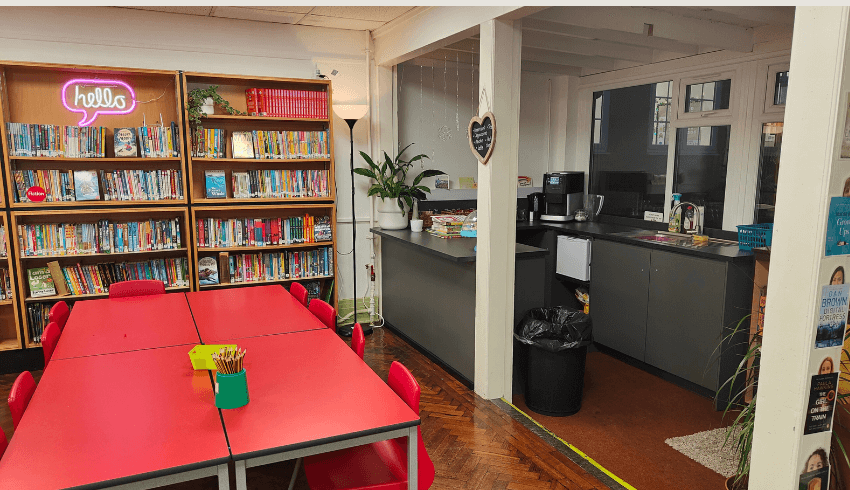
Rachel Sligo explains how a new ‘Story Centre’ at Pegswood Primary is transforming attitudes to reading across her whole school community…
Our school library had became a dead space; unused, full of out-of-date books and in need of bringing in line with our pupils’ current interests and experiences.
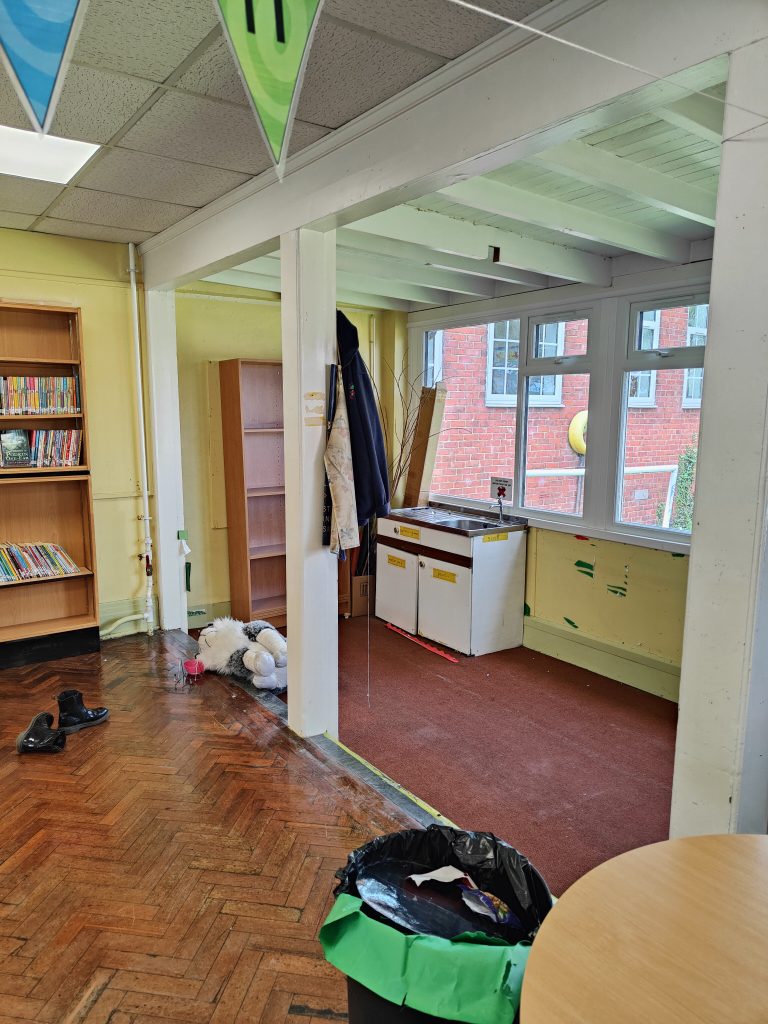
As a teacher with a love of literacy and reading, I knew there must be something we could do to create a better space. Somewhere children would not only feel comfortable engaging with books, but where those who weren’t confident with reading wouldn’t feel out of place.
“I knew there must be something we could do to create a better space”
We got support from the whole school and our wider community, including the North of Tyne Combined Authority. Our Story Centre is now so much more than a library.
Transformation
In our local area, we have brilliant libraries, but even with access to these, only 19 per cent of our KS2 students visit libraries outside of school. So, to turn the library into a warm and inviting space, we completely remodelled the room.
We began by exploring the options available to help fund the project. As a participant in the National Professional Qualification (NPQ) for Leading Literacy (provided by the Three Rivers Teaching School Hub), I was able to apply to the North of Tyne Combined Authority for support.
“To turn the library into a warm and inviting space, we completely remodelled the room”
We were delighted when our application was accepted. We received £5,000 which helped us with the costs greatly.
To ensure we didn’t disrupt the school, we worked over May half-term and the summer holidays. We also recruited help from friends and family to keep costs down. Come September, the new space had been created, our idea had come to fruition, and our old school library was now the Story Centre.
What is the Story Centre?
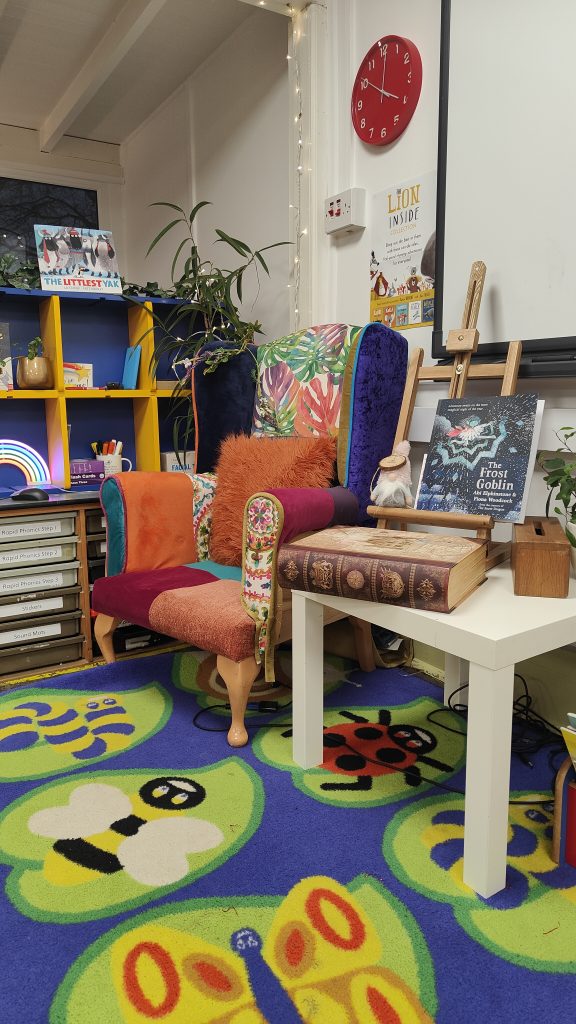
The impact of our Story Centre has so far been wonderful. It’s a comfortable space where students can be loud if they want to.
We have tried to make it feel very different from a traditional library: providing a hub to engage families with every aspect of storytelling, not just reading.
The area is filled with visual displays. There are seating areas and cushions where we can chat about books, and enjoy and engage with stories together. We built the space to be accessible to everyone.
“We have tried to make it feel very different from a traditional library”
Children who are less confident with reading can still feel comfortable here, engaging with books through bookmark-making or listening to storytelling. Getting learners interested in books slowly, and through avenues that suit them, is just as important as reading.
We also wanted to ensure that the space is inclusive to all types of learning. Some students with SEND can struggle to sit still and be quiet, so curating a space where both quiet reading and loud learning can co-exist was very important to us.
Relevant stories and real authors
We made it a priority that the books and stories we offer are diverse and reflect our students, so that they can see themselves in the books they read. However, it was equally as important to us that we engage with authors and writers themselves.
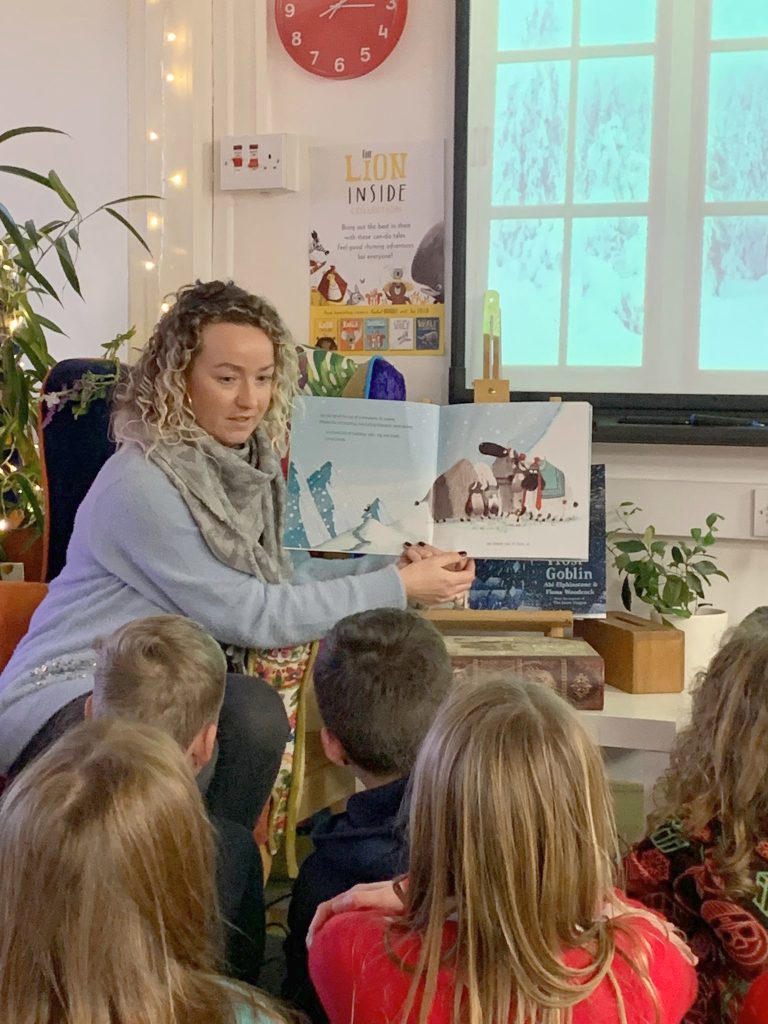
A recent Pegswood School student survey showed that only 16 per cent of KS2 children in our school could name five children’s authors.
“The books and stories we offer are diverse and reflect our students”
We wanted to address this by inviting a wide range of writers into the Story Centre, giving our children the opportunity to interact with creators from different backgrounds and walks of life.
Pupils have had the chance to engage with authors such as S.F. Said, Hannah Gold and Jennie Pearson. When children meet the writers of stories they love, their interest and engagement go through the roof.
And we don’t just limit these events to our students. We encourage parents and carers to come along too, so they can see firsthand how much joy reading and storytelling can bring. We also encourage parents to donate books on our reading list, rather than buy presents for staff.
Hub for the community
We want the Story Centre to also be a meeting place for the whole community, and that is becoming a reality.
For example, we hosted a workshop in partnership with a local business, where members of the community built autumn wreaths.
Not only did this provide a chance to show off our Story Centre and act as a community hub, it was a fundraiser too.
Getting everyone on board
- Be loud and clear about your vision. Enthusiasm is infectious.
- Take some of the pressure off your colleagues by becoming an expert in children’s books.
- Make sure the library has something for everyone, even if that isn’t reading.
- Find like-minded people in the community or online, so you can ask for advice and share ideas.
- Read! If you get lost in books, that will filter down to the pupils.
- Be creative about fundraising and funding. Competitions, raffles, sponsored reads, weekend workshops and grants have made it possible for us to book various author visits and events.
Rachael Sligo is an English lead teacher at Pegswood Primary School.










